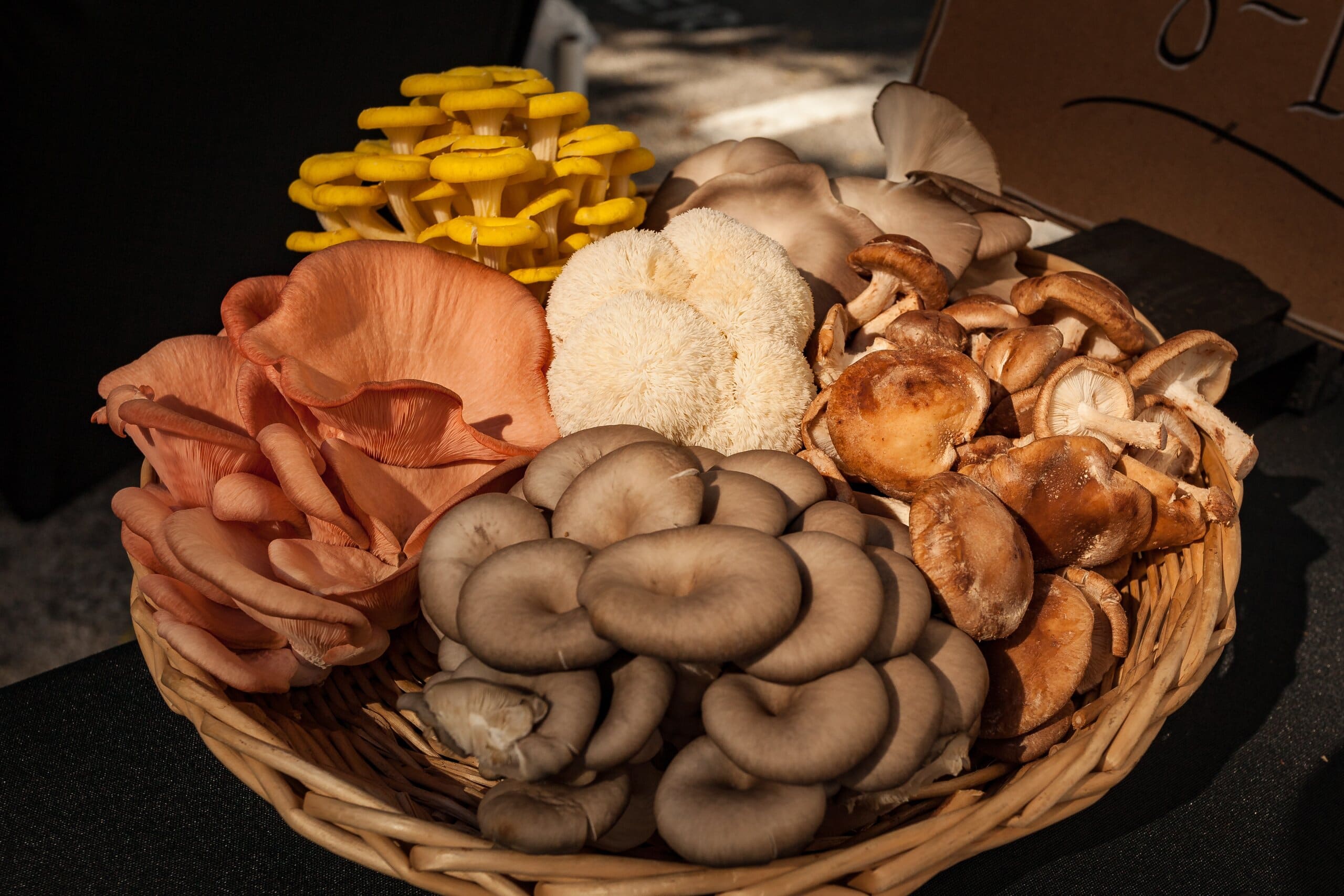Lion's Mane mushrooms are becoming the latest food trend, with some people even adding them to their morning coffee.
This month, Aldi launched a range of Lion's Mane mushrooms after Fungi Foods secured the contract on Aldi’s Next Big Thing. Jeremy Clarkson also endorsed the product by growing his own on the latest series of his show Clarkson’s Farm.
Our Sleep Experts have delved into how mushrooms can help you sleep, and the benefits behind them...

What are Lion Mane mushrooms?
Lion's Mane (Hericium erinaceus) is a sought-after mushroom in culinary and medicinal practices, particularly in Asian regions. Its distinctive appearance, resembling a lion's mane as it matures, inspires its name.
In the UK, Lion's Mane mushrooms are classified under Schedule 8 of the Wildlife and Countryside Act 1981, affording them the highest level of protection against deliberate harvesting from the wild. This means you can only buy these in shops and markets.
These mushrooms can be consumed raw or ground into powder, often added to beverages like coffee. It's believed that Lion's Mane mushrooms contribute to improved sleep quality and reducing drowsiness, while also bolstering the immune system and enhancing cognitive function, thereby aiding memory retention.
Why are people adding Lion's Mane mushrooms to their morning coffee?
Searches on Google for “Lion’s Mane Mushroom” have increased 400% in the last month throughout the UK.
Martin Seeley, Sleep Expert and CEO of MattressNextDay, understands why this trend has taken off:
We know there are a lot of nutritional benefits to adding mushrooms to your diet, and an easy way to do this is adding powder to your morning coffees. The studies suggest this improves your brain function, as well as the immune system, so you’re ready to start the day.
Martin
Four beneficial effects of mushrooms to help you sleep
Lion’s Mane mushrooms aren’t the sole source of health benefits; it's widely believed that mushrooms, overall, offer numerous minerals and vitamins crucial for sustaining a robust immune system and supporting various bodily functions.
To shed light on the advantages of incorporating mushrooms into our diet, Martin has shared four tips highlighting how indulging in fungi can positively impact your sleep and overall well-being.
1. Try Lions Mane mushrooms to help support your sleep
Consider trying Lion's Mane Mushrooms to support your sleep. One of the primary benefits attributed to Lion's Mane Mushrooms is their purported ability to aid sleep without inducing drowsiness. It's theorised that this effect stems from their capacity to alleviate stress on the nervous system, thereby reducing anxiety and facilitating easier sleep onset.
Certain studies suggest that Lion's Mane Mushrooms may enhance brain function, potentially hastening the onset of REM sleep and thereby improving overall sleep quality. Additionally, it's proposed that this improvement in mood may contribute to a healthier sleep pattern.
If you're considering incorporating Lion's Mane supplements or powders into your diet, it's advisable to consult with a healthcare professional, such as your GP, especially if you have concerns about potential interactions with medications
2. Adding mushrooms to your diet can add vitamin D which can improve sleep
Adding mushrooms to your diet can potentially boost your vitamin D intake. Studies indicate that exposing mushrooms to sunlight before consumption can enhance their Vitamin D2 content, increasing your intake when consumed.
Maintaining adequate levels of Vitamin D, particularly during the winter months in the UK, is crucial given the weather conditions. Incorporating foods like mushrooms into your diet not only aids in addressing vitamin deficiencies but also contributes to regulating sleep patterns.

3. Shiitake and Reishi mushrooms can help you sleep better
Shiitake and reishi mushrooms are renowned for their potential to improve sleep quality.
Shiitake mushrooms contain compounds like lentinan and eritadenine, known for their antioxidant properties that help with relaxation. Moreover, shiitake mushrooms are believed to possess anti-inflammatory properties, which may contribute to better sleep quality.
Studies on reishi mushrooms suggest they can increase total sleep time, induce relaxation, and alleviate fatigue. However, it's advisable to consult with a healthcare professional before taking reishi, especially if you are on medication, as it may interact with certain medications.
For even more tasty advice, check out our article on the 7 best foods to help you sleep.
4. Mushrooms help build up your immune system
Adding mushrooms to your weekly diet can help promote a robust immune system. Mushrooms provide essential nutrients that help with your immune health. Incorporating mushrooms that are rich in nutrients like selenium can aid your body in producing antioxidant enzymes, shielding cells from damage.
Selenium occurs naturally in foods or can be taken as a supplement. It serves as a vital element in numerous enzymes and proteins known as selenoproteins. These substances play crucial roles in DNA synthesis and safeguarding cells from damage and infections. Consuming immune-boosting foods can aid in maintaining a consistent sleep pattern, as illnesses often disrupt our sleep schedules.

For more tips and things to try to get a better night's sleep, read our guides such as how switching to a vegan diet can help you sleep, or the fad diets that may be disrupting your sleep!






